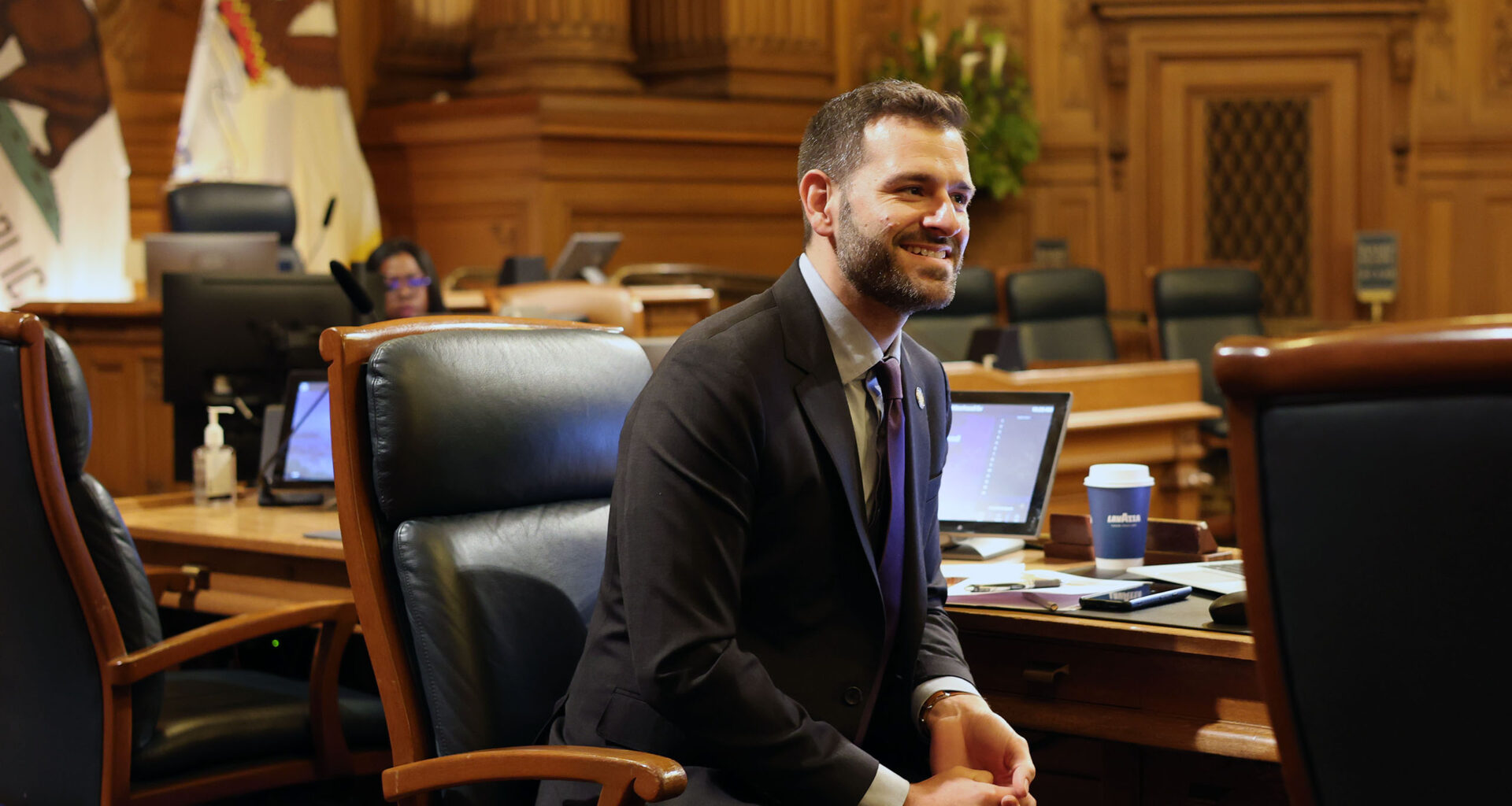Change is coming to San Francisco’s historic North Beach and Nob Hill, after the Board of Supervisors on Tuesday voted to do away with a host of regulations on retail businesses that supporters say stifled a community struggling to bounce back from the pandemic.
Critics, meanwhile, fear the neighborhood’s character will change.
The legislation made a bevy of changes to zoning and planning restrictions. In Nob Hill, for examples, art stores like ceramic studios were not allowed to open.
Now, retail spaces can be converted into new restaurants, which previously could only open up in the space of an existing restaurant. Multiple types of businesses will be able to split a storefront and operate from one site — a joint cafe and bookstore, for instance.
City supervisors passed the law, authored by District 3 Supervisor Danny Sauter, in an 8-2 vote.
“District 3’s reputation as the hardest district in San Francisco to start or run a small business is not something anyone should be proud of and this legislation will go a long way towards changing that,” Sauter said.
The supervisor said dealing with the area’s many regulations has impeded businesses from opening or expanding there, and pointed to retail vacancies. City data shows sales taxes from North Beach businesses are down 32 percent from pre-pandemic levels.
North Beach bakery Butter & Crumble, for instance, is looking to open a new storefront in the neighborhood focused solely on cakes. “We’ve been looking for spaces and it’s been quite a journey but we finally found one that will fit our vision perfectly that we have our heart very set on,” owner Sophie Smith said. “Unfortunately we won’t be able to go into this spot unless this legislation is passed.” A restaurant was not allowed to open in the space.
Supervisors Connie Chan, who attempted to amend the legislation, and Shaman Walton voted against the legislation.
And the new legislation has ruffled some feathers: Some residents and business owners argue that North Beach is fine as it is.
“What confuses me as someone who really loves the community is that it seems to be thriving,” one North Beach resident said during public comment at an Oct. 6 hearing about the legislation. “I’m just wondering if this is a solution in search of a problem.”
The legislation earned the endorsement of several neighborhood groups including North Beach Neighbors and Nob Hill Association. Others are still wary, including the North Beach Business Association.
“There’s some really creative ideas that we embraced wholeheartedly,” said Stuart Watts, the president of the North Beach Business Association. “And then there were some way more seismic changes that we were hesitant to embrace.”
Watts said that he is particularly worried about allowing retail spaces to be converted into restaurants. He worries that under the new law, the balance of restaurants to retail in North Beach could be upended.
He also wants the board to walk back recent legislation, authored by District 7 Supervisor Myrna Melgar, that got rid of a hard cap that limited businesses to 4,000 square feet maximum.
Sauter’s legislation comes at a time where members of the board have clashed over how to handle land use issues. Sauter, among others, has favored deregulatory land use policies that offer more freedom (the upzoning plan, for instance, would allow developers to build taller buildings).
But other supervisors have supported a more controlled approach, where permission (and exceptions) for certain land uses are granted on a case by case basis.
Aaron Peskin, Sauter’s predecessor as District 3 supervisor, favored the latter approach and wrote some of the rules that Sauter is now undoing. And though he’s no longer on the board, people who have similar land use politics remain — including District 1 Supervisor Chan, who proposed amendments on Tuesday.
Chan acknowledged that the legislation did not affect her district, only Sauter’s. But, she said, referencing Watts’ concern about restaurant ratios and large commercial spaces, “there’s a significant number of opposition letters.”
Although Chan attempted to get the legislation reconsidered, the motion failed in a narrow 5-5 vote.
The supervisors who voted against the reconsideration pointed out that supervisors typically defer to the district supervisors on land use issues in their own district. Plus, amendments are typically proposed when the legislation goes to the Board’s Land Use Committee, not in front of the full board.
With the option to further amend the legislation off the table, it went forward with the 8-2 majority.

